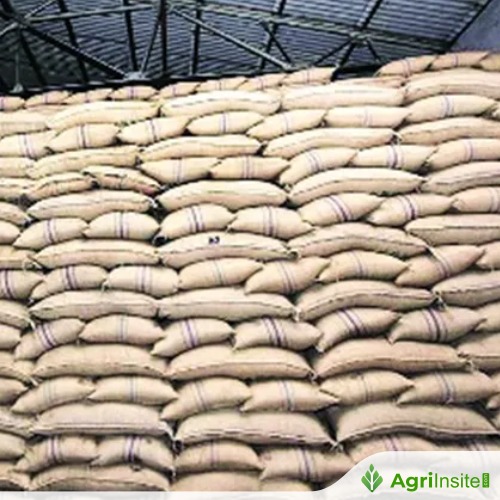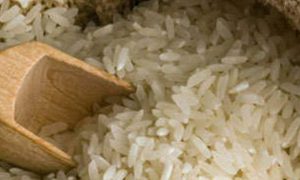Ghana : Farmers Petition Mahama Over One Million Tonnes of Unsold Rice

Ghanaian farmers have petitioned President John Mahama to ban rice, maize, and soybean imports for six months, citing a glut of one million tonnes of unsold paddy rice worth GHS 5 billion. They blame cheap imports, weak procurement, and smuggling, urging swift government intervention to protect livelihoods and ensure market stability.
Ghanaian farmers have petitioned President John Dramani Mahama seeking urgent intervention as an estimated one million metric tonnes of paddy rice valued at five billion Ghana cedis remain unsold in farming communities across the country, threatening the livelihoods of over one million agricultural workers.
The coalition of smallholder farmers and agribusiness operators, led by commercial farmer Madam Abdul-Aziz Jawharatu, presented the petition through Northern Regional Minister Ali Adolf John Mburidiba at the Northern Regional Coordinating Council in Tamale on Monday. The farmers are calling for a six-month moratorium on rice, maize, and soybean imports to allow clearance of existing locally produced stocks warehoused nationwide.
The petition was submitted on behalf of multiple agricultural organizations including rice producers and millers, the Peasant Farmers Association of Ghana (PFAG), Ghana Rice Inter-Professional Body (GRIB), Ghana Agricultural Workers Union (GAWU), Chamber of Agribusiness Ghana, Soya Value Chain Association, National Seed Trade Association of Ghana (NASTAG), NETCAP, Rice Millers Association, and allied farmer groups and networks.
According to the farmers, major millers have suspended operations as the domestic market has been overwhelmed by an influx of cheap, substandard rice allegedly smuggled into the country. The crisis has been compounded by the state procurement system’s failure to prioritize purchasing locally produced rice, leaving farmers facing potentially substantial losses that threaten the sustainability of Ghana’s rice industry.
The grain economy contributes approximately 20 percent of national Gross Domestic Product (GDP), while in rural Ghana nine out of every ten families depend directly or indirectly on agriculture, the petition stated. The farmers described themselves as facing an escalating crisis of lacking markets for their produce, namely rice, maize, and soya, which form the backbone of Ghana’s food security basket.
In 2024, Ghana produced about 3.6 million metric tonnes of maize. However, with the poultry sector’s collapse and unfair competition from cheap imports, farmers are being forced to sell at giveaway prices or abandon harvesting entirely, they explained. The farmers noted that the once vibrant soya processing sector and market demand are collapsing due to weak local industry support and absence of support for local markets.
The situation has been further aggravated by the ban on export of local grains including soya, which the farmers argue has exacerbated their predicament. They explained that harvesting season is almost ended, but the usual hordes of buyers who come to the field and purchase produce are nowhere to be seen because they cannot find buyers for their products.
Abdul-Aziz Jawharatu, reading the petition, emphasized that farmers stand ready to feed the nation but need a level playing field and policies that serve Ghanaian farmers first. The association attributed the crisis partly to the National Food Buffer Stock Company’s (NAFCO) failure to honor its commitment to purchase excess rice and maize from farmers.
Several millers have halted operations due to lack of working capital, rising input costs, and limited access to affordable credit, worsening the grain glut across key producing regions. The farmers also blamed smugglers for flooding the market with cheap, substandard cereals brought in through unapproved routes without paying taxes.
National Chairman of the Rice Farmers Association, Sayibu Braimah, warned that these smugglers do not pay a pesewa in tax yet are collapsing local businesses. He stated that the association has written several petitions to authorities without action, and threatened a nationwide demonstration if the government fails to act.
Beyond the immediate import ban request, farmers are demanding creation of a transparent import quota system and a crackdown on rice smuggling. They want government institutions required to procure Ghanaian rice for official use, including the School Feeding Programme, Armed Forces, and Prisons Service. The petition also calls for NAFCO to publish details of contracts and beneficiaries under its purchase programme.
Additional requests include introduction of minimum farmgate prices for rice, maize, and soya, and provision of low-interest loans to rice millers to sustain local processing. The farmers want the government to lift the ban on soya bean exports, arguing this would boost income for smallholder farmers facing restricted market options.
The Chamber of Agribusiness Ghana has separately declared a national agricultural emergency, revealing that over 1.2 million metric tonnes of rice, maize, and soya beans remain unsold across farming communities nationwide. The Chamber blamed the glut on poor market coordination, restrictive policies, and rising imports that have pushed local farmers to the brink.
According to available data, Ghana’s domestic milled rice production reached 900,000 metric tonnes in the 2025/26 period, marking an 18 percent increase from previous years. However, consumption surged to 1.8 million metric tonnes, driven by population growth, urbanization, and changing dietary preferences, leaving a self-sufficiency ratio hovering around 50 percent.
Import pricing dynamics favor foreign suppliers, creating additional pressure on local producers. As of early 2025, a 25-kilogram bag of Thai fragrant rice averaged 690 Ghana cedis, Vietnamese rice sold at 490 Ghana cedis, while local long-grain rice was priced at 535 Ghana cedis. With 70 percent of rice sold in Ghana imported largely from Vietnam, India, and Thailand, local producers struggle to compete on cost despite quality improvements.
Local rice production faces significant structural challenges including inadequate irrigation infrastructure, high input costs, low mechanization, and limited processing capacity. Currently, only 41,553.6 hectares of irrigated area serves rice cultivation, representing 16 percent of the total 259,710 hectares under cultivation. The remaining 78 percent relies on rain-fed lowlands and six percent on rain-fed uplands, making production vulnerable to climate variability.
Agricultural economists have noted that farmers unable to sell rice stored in warehouses since 2024 now face the 2025 harvest season with growing desperation. The economic impact extends beyond individual farmers to affect the entire agricultural value chain, including aggregators, women grain traders, and rural communities dependent on agricultural income.
The Northern Regional Minister received the petition and expressed gratitude to contributors in the economy. He assured farmers of government swift intervention to address their grievances within the agricultural sector to boost food production and security. Mburidiba noted that efforts will be made to ensure local products are patronized by government and the private sector to cushion their businesses in growing the economy.
The minister confirmed that President Mahama has been briefed on the situation and that discussions are underway with the Minister of Agriculture to find sustainable solutions. He stated that the government will not sit aloof while hardworking farmers suffer, though no specific timeline for intervention was provided.
The farmers’ petition comes amid ongoing debates about Ghana’s food self-sufficiency agenda and trade policy in agricultural commodities. Critics of current policies argue that inconsistent implementation, lack of price protection mechanisms, and poor coordination between producers, millers, and regulators continue to undermine domestic agricultural development.
Some agricultural experts recommend establishing a Strategic Grain Reserve Procurement Programme to enable the National Food Buffer Stock Company to purchase surplus grains directly from farmers. Such a programme would stabilize prices, support farmers, and ensure a steady grain supply to the poultry, livestock, and food processing industries.
Longer-term proposals include development of a five-year Ghana Rice Production Strategy, expanded irrigation infrastructure, and increased private-sector participation in agro-processing to boost productivity and secure rural livelihoods. Proponents argue that strengthening farmer cooperatives is equally crucial to improve productivity and competitiveness against imports.
Whether the government will implement the requested import moratorium remains uncertain. Such a policy would require balancing support for local farmers against ensuring adequate food availability for consumers, particularly urban populations accustomed to imported rice varieties. The decision will likely involve complex trade-offs between agricultural development objectives and consumer welfare considerations.
The crisis highlights broader tensions in Ghana’s agricultural policy between promoting domestic production and maintaining open markets. As warehouses bulge with unsold locally produced rice while planting continues for upcoming seasons under uncertain market conditions, the urgency of policy intervention grows.
For now, farmers across Ghana’s diverse agricultural landscapes await government action while facing mounting financial pressures. Their livelihoods depend on sustainable agriculture and a functioning grain economy that feeds millions of urban dwellers, making resolution of the current crisis critical for both rural and urban Ghana.
To Read more about Rice News continue reading Agriinsite.com
Source : News Ghana
















